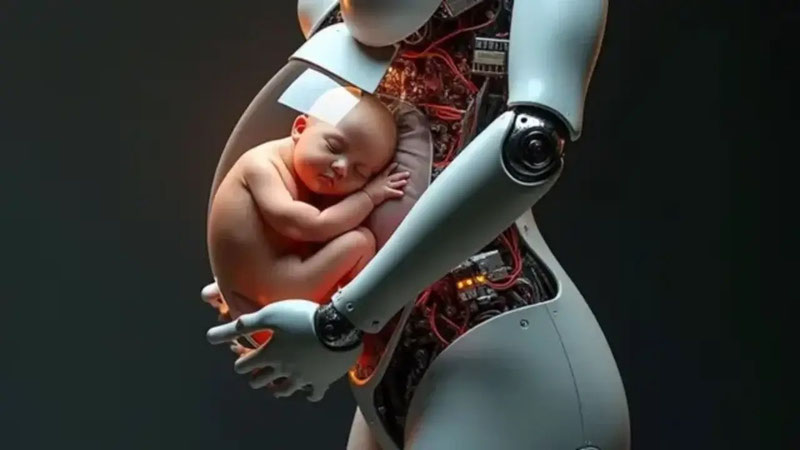Kaiwa Technology from China has unveiled to the public the world's first humanoid robot prototype designed to carry a pregnancy and give birth over ten months. This was reported by Interesting Engineering.
The project is based on an artificial womb module filled with amniotic fluid. This innovative system aims to mimic embryonic development and the natural pregnancy process. Nutrients will be delivered to the robot through a special tube to ensure fetal growth.
According to Dr. Zhang, the company's founder and CEO, the device has successfully passed animal trials. He stated that the robot is expected to hit the market in 2026 at a price of around 100,000 yuan (approximately $14,000). The new technology is intended for young people who wish to have children but are unable to undergo natural pregnancy, families deprived of the opportunity to conceive, and even single individuals.
This innovation has sparked heated debates on Chinese social media. The search term "world's first pregnant robot" topped Weibo's trending list. Opinions were divided: critics labeled it as "heartless" and "against ethical norms," while supporters see the technology as a modern way to spare women from the physical hardships of pregnancy.
It is worth noting that by 2020, China's infertility rate had reached 18%, and surrogacy is legally banned in the country. Therefore, demand for such technology is expected to be very high, writes Interesting Engineering. Many social media users have expressed hope that the robot could fulfill their dream of having children.
In conclusion, Kaiwa Technology's prototype could not only represent a technological breakthrough but also have a significant impact on perceptions of family-building and generational continuity.






